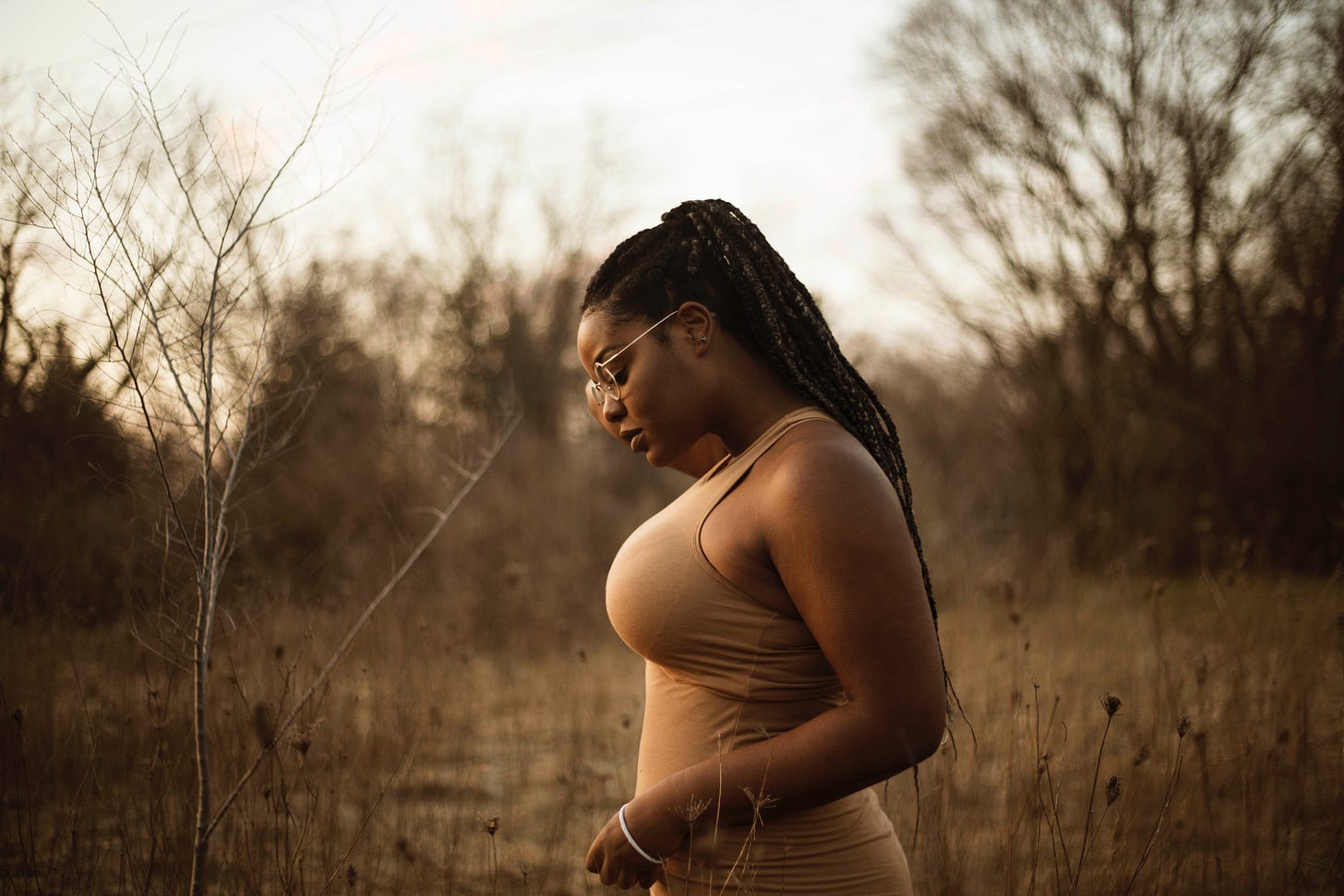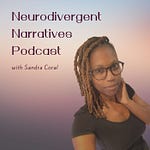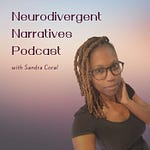
Photo by Jessica Felicio on Unsplash
My unmanaged (and undiagnosed) ADHD added to the difficulty of emotionally regulating the shame and guilt I felt in hiding what being Black meant to me as a transracial adoptee. This impacted decisions I’ve made my whole life, including the person I thought I should be. I couldn’t cope with the dissonance of not understanding what it meant to me to be Black while living alone in white spaces. Instead, I forced myself to pretend that it didn’t matter what I thought or felt. I would show that I was a different Black person. That I belonged in the world of white spaces and being the only Black girl didn’t make a difference to me whatsoever.
I don’t think there are much harder emotions to regulate than the internalised oppression that forces us to hide who we fundamentally are. It creates the kind of shame that threatens to tattoos itself to our bones. It builds fear that forces us to stay hidden trying to fit into the expectations of others, denying more of our true selves. When we attempt to hide what isn’t acceptable, that also means burying parts of ourselves that we love too.
We walk around as shells of ourselves, while our insides battle for what version of ourselves should take control. The person that we know we are, or the person that we’ve been told to be. I could effectively be the person that everyone else wanted me to be when I didn’t have to think about who I was. The many addictions I had throughout my life helped me achieve this. I could keep my discomfort buried, and meet the needs of my undiagnosed ADHD at the same time. It was easier for my undiagnosed ADHD to feed off my various addictions rather than have to manage the emotions that came up from knowing that who I was would never truly be accepted.
On the outside, it seemed that I could somewhat keep it together, but this came with a delicate balance. My insides were always on high alert for any shame came up for denying my Blackness which left me feeling worse. Developing anti-Blackness seemed to ‘help’ manage my own internalised racism and internalised oppressions. I thought it separated me from the problem, so I could feel justified in proving that I was a different Black person. I cannot tell you the number of jobs and friendships I’ve lost, the thing I’ve done to try avoiding rejection and the ways I’ve betrayed myself, all in the name of proving myself. I never realised that every decision that ended in self-betrayal meant adding more layers to my already towering levels of shame.
I carry a lot of shame in this body.
Whenever my undiagnosed ADHD lashed out in meltdowns and crumbled into burnout, it was because I couldn’t handle all the dissonance inside me. The exhaustion of trying to regulate all this shame, while finding the strength to continue pretending to be all that I was never meant to be, would become too much to bear. The things we think are gone are never too far away, especially if we’ve never dealt with them in the first place. They keep coming back up when we least expect it, and rather than becoming a reason to try to make changes, it often becomes a reason to try harder to keep it together next time.
As long as we don’t work to repair the roots of the problem, there will always be another next time.
I don’t know how different I would have been if I grew up knowing that I could be the person I was. I don’t know how my undiagnosed ADHD would have dealt with the emotional dysregulation stemming from internalised oppression if there were safe spaces that I knew I could learn what my Blackness meant to me too. Instead, I learned that to survive meant fragmenting off the pieces of myself that were deemed unacceptable. But what I was asked to get rid of was way too substantial. It intertwined with all that it meant to be me. Each piece that I could break apart, ended up taking more than I ever anticipated with it while leaving more shame and guilt in its place. More shame and guilt that my undiagnosed ADHD had to somehow try to regulate, so I could keep pretending that I could be better than everyone expected me to be.
There’s no chance to show up authentically in your life when you’re forced to be everything but yourself. When my life fell apart, leaving me no choice but to begin to listen to myself, I finally got my ADHD diagnosed. Learning to manage my ADHD meant that I learned to stop looking to others to know who I was or my ways of being. I needed to make these decisions for myself. But now I had to learn about myself too.
My anti-Blackness became something that I needed to unpack, so I could create my own narrative around what it meant for me to be a Black woman. I still struggle every day to step more fully into my uniqueness. But the more that I learn about myself and what I need to be at my best, the more shame I release, and a little bit more of myself can emerge.
There is nothing harder for me than to emotionally regulate the weight of internalised oppression. Learning to accept and love who I am, regardless of what I find while putting those fragmented pieces of myself back together, is worth all the pain and discomfort the process of healing and rebuilding myself takes. I’ve found more joy in living in my truth than I ever felt in any moments being a shell of who I was trying to fit into the demands of the world around me.
It’s also come with the benefit of carrying less shame and that’s made all the difference.










Share this post